VANESSA RUBIN / “Corcovado”
"My contemporaries and I learned a lot from the Brazilian composers who came before us. People like Pixinguinha, Ary Barroso and Dorival Caymmi left a rastro, a track of beauty for us to follow. When Bossa Nova first appeared in Brazil, though, it had so many adversaries, so many puristas full of animosity. Yet the U.S. loved us. We received so many no's in Brazil, and so many yes's in the States. With hindsight, I can see that the more the U.S. said yes, the more Brazil said no. Our affinity for jazz was part of the problem, and it has come to dominate many people's thinking about our music. Instead of going into history as a branch of samba, which it is, Bossa Nova is viewed by the world as a branch of jazz. Of course...anything that swings today is called jazz, the term has become so encompassing. And the only countries that really swing in their music are the U.S., Cuba and Brazil." —Tom Jobim
 There is a high ridge in Rio. On the peak stands a 100-foot alabaster statue of Jesus with his arms outstretched. That mountain that sits wholly within the city is simply called by the Portuguese word for ‘humpback’—corcovado. This is a musical traveling across Corcovado.
Last week we investigated “Body and Soul.” That was a rather straightforward journey, no such luck this week. My advice is listen twice. The first time just let the music play, accept howsoever your ears hear it. The second time you can reference the info I include as well as whatever info you might have that I didn’t include.
There is a high ridge in Rio. On the peak stands a 100-foot alabaster statue of Jesus with his arms outstretched. That mountain that sits wholly within the city is simply called by the Portuguese word for ‘humpback’—corcovado. This is a musical traveling across Corcovado.
Last week we investigated “Body and Soul.” That was a rather straightforward journey, no such luck this week. My advice is listen twice. The first time just let the music play, accept howsoever your ears hear it. The second time you can reference the info I include as well as whatever info you might have that I didn’t include.
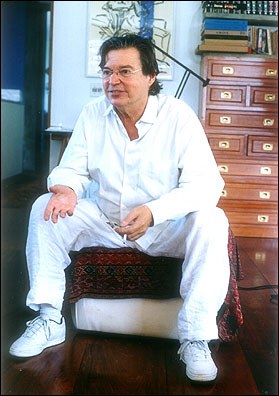 “Corcovado” is a musical composition by Antônio Carlos “Tom” Jobim. He is critically acclaimed and widely accepted as the greatest composer of Bossa Nova music. There is also a version with English lyrics by American lyricist Gene Lees. The English version is known as “Quiet Nights” and its meaning is different from the original, which memoralizes the mountain and the statue of Jesus Christ.
Bossa Nova, or 'the new beat,' is an off-shoot of Samba, sort of like Rock 'N Roll is an offshoot of Rhythm & Blues. Samba is a street music, plenty of drums/percussion, but this new beat minimalized (some would say internalized) the drum. The sound is lighter. The emphasis is on softness, melody and romanticism all combined with cool jazz.
Although Tom Jobim is the major musical architect of Bossa Nova, he is not the founder.
“Corcovado” is a musical composition by Antônio Carlos “Tom” Jobim. He is critically acclaimed and widely accepted as the greatest composer of Bossa Nova music. There is also a version with English lyrics by American lyricist Gene Lees. The English version is known as “Quiet Nights” and its meaning is different from the original, which memoralizes the mountain and the statue of Jesus Christ.
Bossa Nova, or 'the new beat,' is an off-shoot of Samba, sort of like Rock 'N Roll is an offshoot of Rhythm & Blues. Samba is a street music, plenty of drums/percussion, but this new beat minimalized (some would say internalized) the drum. The sound is lighter. The emphasis is on softness, melody and romanticism all combined with cool jazz.
Although Tom Jobim is the major musical architect of Bossa Nova, he is not the founder.
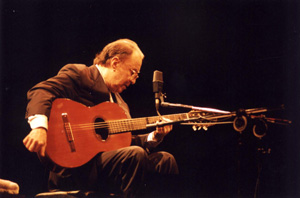 Bahia born João Gilberto is the person who actually created the Bossa Nova style in his search for a new way to play Brazilian music. In the late Fifties, João invented the intimate, soft and vibrato-less style of singing characteristic of Bossa Nova. Significantly, he is singing and playing guitar on the most popular version of “Corcovado” taken from the Grammy winning album Getz/Gilberto.
“Corcovado” is far from the favorite or best known Bossa Nova song. That honor goes to “Girl From Ipanema” which we wrote about previously on BoL. Actually, “Corcovado” is second or even third-tier Bossa Nova, but no matter. This overview looks at the song as a jumping-off point or vehicle for wide-ranging and highly diverse interpretations from a Brazilian, a jazz and a pop perspective.
We start off with the all-time classic version from an album that sold more than any other Bossa Nova recording: Getz/Gilberto. We will end with a remix project that utilizes snatches of the song in a straight-up dance club/house arrangement. In between we will hear from classic, contemporary and emerging musicians performing in diverse styles.
Bahia born João Gilberto is the person who actually created the Bossa Nova style in his search for a new way to play Brazilian music. In the late Fifties, João invented the intimate, soft and vibrato-less style of singing characteristic of Bossa Nova. Significantly, he is singing and playing guitar on the most popular version of “Corcovado” taken from the Grammy winning album Getz/Gilberto.
“Corcovado” is far from the favorite or best known Bossa Nova song. That honor goes to “Girl From Ipanema” which we wrote about previously on BoL. Actually, “Corcovado” is second or even third-tier Bossa Nova, but no matter. This overview looks at the song as a jumping-off point or vehicle for wide-ranging and highly diverse interpretations from a Brazilian, a jazz and a pop perspective.
We start off with the all-time classic version from an album that sold more than any other Bossa Nova recording: Getz/Gilberto. We will end with a remix project that utilizes snatches of the song in a straight-up dance club/house arrangement. In between we will hear from classic, contemporary and emerging musicians performing in diverse styles.
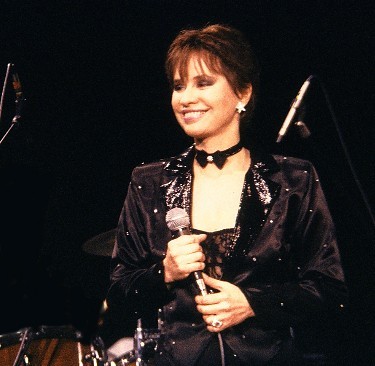 Astrud Gilberto was a housewife accompanying her husband to a recording session in New York. She sang only at her husband João’s insistence. Previously, she had not been known as a vocalist. It may have been João’s vocal style that actually established Bossa Nova, but After Getz/Gilberto made the scene, the airy, plainative albeit pretty voice of Astrud Gilberto defined the Bossa Nova vocal sound for female singers.
The band on this version is an all-star Brazilian ensemble featuring João Gilberto - guitar, vocals; Antônio Carlos Jobim - piano; Sebastião Neto – bass; Milton Banana - drums; and Astrud Gilberto – vocals; joined by Stan Getz on tenor saxophone.
Astrud Gilberto was a housewife accompanying her husband to a recording session in New York. She sang only at her husband João’s insistence. Previously, she had not been known as a vocalist. It may have been João’s vocal style that actually established Bossa Nova, but After Getz/Gilberto made the scene, the airy, plainative albeit pretty voice of Astrud Gilberto defined the Bossa Nova vocal sound for female singers.
The band on this version is an all-star Brazilian ensemble featuring João Gilberto - guitar, vocals; Antônio Carlos Jobim - piano; Sebastião Neto – bass; Milton Banana - drums; and Astrud Gilberto – vocals; joined by Stan Getz on tenor saxophone.
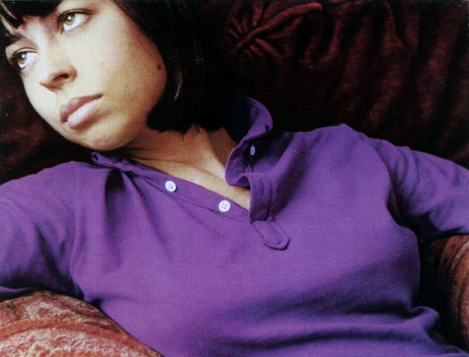 Nara Leão, often referred to as the “muse” of Bossa Nova, offers us a classic version. The instrumentation supporting Nara’s simple voice is two guitars and light percussion. This what the music might have sounded like in Leão's house in the late Fifties where many of the early innovators of Bossa Nova often gathered. Leão is credited with introducing many of the major artists of Brazilian music including Maria Bethania, whom Leão picked to be her replacement in a popular production of Brazilian music that Leão had initiated. After the Brazilian military coup in 1964, Leão's work became increasingly political in tone and eventually she went into exile, at one point even denouncing Bossa Nova as “alienating.” After the military dictatorship ended, Nara Leão’s career re-emerged in Brazil and she recorded new interpretations of Bossa Nova standards.
Although the Getz/Gilberto version is classic, the Leão version is perhaps the most “authentic” or most representative of the basic elements of Bossa Nova.
Nara Leão, often referred to as the “muse” of Bossa Nova, offers us a classic version. The instrumentation supporting Nara’s simple voice is two guitars and light percussion. This what the music might have sounded like in Leão's house in the late Fifties where many of the early innovators of Bossa Nova often gathered. Leão is credited with introducing many of the major artists of Brazilian music including Maria Bethania, whom Leão picked to be her replacement in a popular production of Brazilian music that Leão had initiated. After the Brazilian military coup in 1964, Leão's work became increasingly political in tone and eventually she went into exile, at one point even denouncing Bossa Nova as “alienating.” After the military dictatorship ended, Nara Leão’s career re-emerged in Brazil and she recorded new interpretations of Bossa Nova standards.
Although the Getz/Gilberto version is classic, the Leão version is perhaps the most “authentic” or most representative of the basic elements of Bossa Nova.
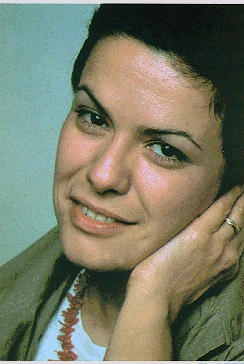 Astrud Gilberto may be better known in the United States but Elis Regina is the queen of modern popular Brazilian (MPB) music. Within MPB, Elis Regina occupies a position analogous to Ella Fitzgerald in the world of jazz vocals.
Astrud Gilberto may be better known in the United States but Elis Regina is the queen of modern popular Brazilian (MPB) music. Within MPB, Elis Regina occupies a position analogous to Ella Fitzgerald in the world of jazz vocals.
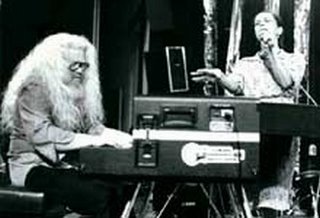 Although Regina recorded more popular versions of “Corcovado” including a classic in collaboration with Tom Jobim, we have chosen a live recording from the Montreaux Jazz Festival on which her only accompaniment is maverick, multi-intrumentalist Brazilian musician Hermeto Pascoal who is a towering figure in post-Fifties Brazilian music. Notice the edge in Hermeto’s approach to piano which is alternately lyrically romantic and passionately percussive. You can hear that they have abandoned the disaffected, cool Bossa Nova approach for a more extroverted style.
Although Regina recorded more popular versions of “Corcovado” including a classic in collaboration with Tom Jobim, we have chosen a live recording from the Montreaux Jazz Festival on which her only accompaniment is maverick, multi-intrumentalist Brazilian musician Hermeto Pascoal who is a towering figure in post-Fifties Brazilian music. Notice the edge in Hermeto’s approach to piano which is alternately lyrically romantic and passionately percussive. You can hear that they have abandoned the disaffected, cool Bossa Nova approach for a more extroverted style.
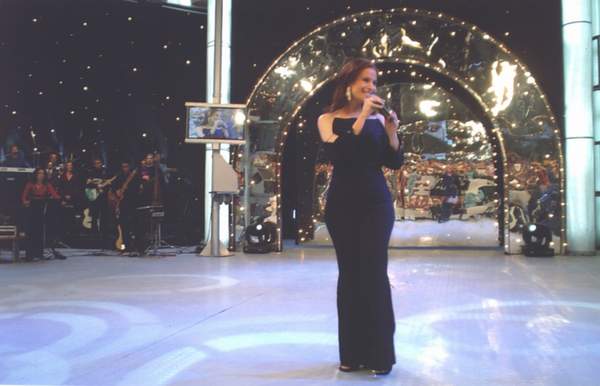 Ithamara Koorax (Brazilian-born of Polish-Jewish parents) represents the romantic trend of Bossa Nova. Big orchestration, cool vocals, choral backing, soft, non-intrusive percussion. Although Ithamara is internationally acclaimed jazz and Brazilian vocalist, this rendition epitomizes the MPB approach popular on the radio in Rio designed to appeal to middle-class Brazilians.
Ithamara Koorax (Brazilian-born of Polish-Jewish parents) represents the romantic trend of Bossa Nova. Big orchestration, cool vocals, choral backing, soft, non-intrusive percussion. Although Ithamara is internationally acclaimed jazz and Brazilian vocalist, this rendition epitomizes the MPB approach popular on the radio in Rio designed to appeal to middle-class Brazilians.
 Brazil has a tradition of vocal groups, often a capella or accompanied solely by a guitar and hand percussion. Trio Esperança represents this tradition. There are at least two or three other more popular vocal groups, but I happen to like their sound, so I share this version.
Brazil has a tradition of vocal groups, often a capella or accompanied solely by a guitar and hand percussion. Trio Esperança represents this tradition. There are at least two or three other more popular vocal groups, but I happen to like their sound, so I share this version.
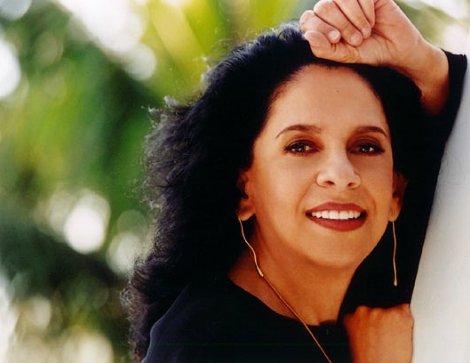 Gal Costa is one of the major voices of modern Brazilian music and one of the founders of the Bahia-based Tropicalismo movement that featured Caetano Veloso, Gilberto Gil and others. These musicians not only infused rock and psychedelic elements into late Sixties Brazilian music, they were also adamantly anti-military. The leaders of their movement were either censored, forced into exile or both.
To my ears, Costa is the most jazz-influenced of the second wave of modern Brazilian vocalists. (If we consider Bossa Nova the first wave and Tropicalismo the second wave.) Her voice is heavier than any of the other vocalists featured thus far and she sings with the tonal inflections and melodic freedom characteristic of the best jazz vocalists. This version was recorded live at the Blue Note in New York City.
Gal Costa is one of the major voices of modern Brazilian music and one of the founders of the Bahia-based Tropicalismo movement that featured Caetano Veloso, Gilberto Gil and others. These musicians not only infused rock and psychedelic elements into late Sixties Brazilian music, they were also adamantly anti-military. The leaders of their movement were either censored, forced into exile or both.
To my ears, Costa is the most jazz-influenced of the second wave of modern Brazilian vocalists. (If we consider Bossa Nova the first wave and Tropicalismo the second wave.) Her voice is heavier than any of the other vocalists featured thus far and she sings with the tonal inflections and melodic freedom characteristic of the best jazz vocalists. This version was recorded live at the Blue Note in New York City.
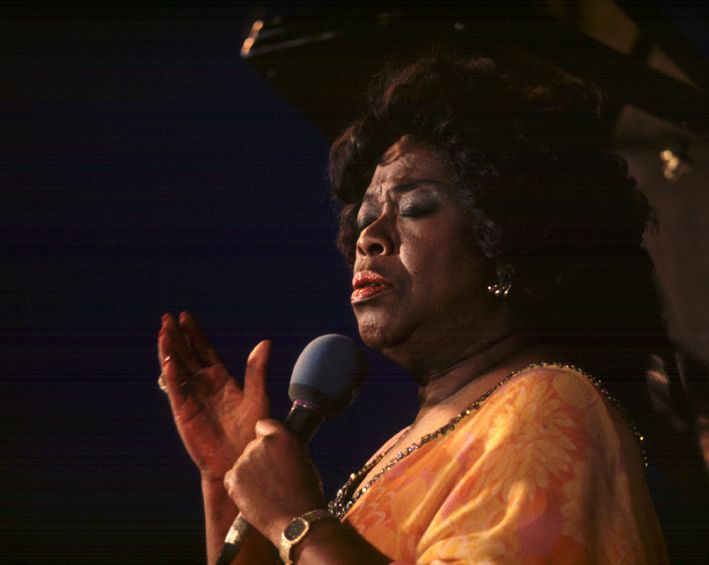 Now check out Sarah Vaughan’s definitive jazz interpretation within a pop setting. It’s all in the way Vaughan uses the full range of her voice, bending the melody, employing all sorts of vocal inflections (glisses sliding from note to note, selective vibrato emphasis, dynamic use of loud and soft tones, rhythmic displacement by extending and shortening notes, etc.). Even though the accompaniment is by the numbers and not particularly imaginative, no matter, Sassy offers a master class on jazz vocal techniques.
Now check out Sarah Vaughan’s definitive jazz interpretation within a pop setting. It’s all in the way Vaughan uses the full range of her voice, bending the melody, employing all sorts of vocal inflections (glisses sliding from note to note, selective vibrato emphasis, dynamic use of loud and soft tones, rhythmic displacement by extending and shortening notes, etc.). Even though the accompaniment is by the numbers and not particularly imaginative, no matter, Sassy offers a master class on jazz vocal techniques.
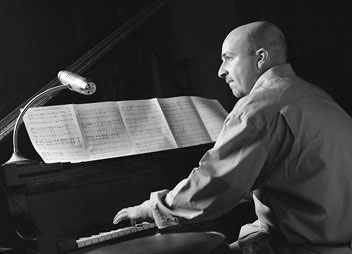 Pianist Peter Martin offers us our first instrumental version, a duet with saxophonist Brice Winston (both of whom are transplanted New Orleanians; Peter from St. Louis, Brice from Tuscon). Their reading manages to go in two directions at once. The piano is all harmonic improvisation. If you just listen to Peter’s piano, there are very few direct references to the melody. Brice’s tenor on the other hand is all melody. He plays in with a light sound initiated by Lester Young and popularized by Stan Getz. Given that “Corcovado” is from a classic Getz recording, Brice was undoubtedly aware of those roots.
What is amazing about this rendition is the fragile sensitivity the two men bring to this hushed interpretation. It is almost as if we are eavesdropping on an very intimate and very private conversation. The movement is a graceful dance. It is as if Peter and Brice boiled down the Getz/Gilberto original version to its most lyrical essence and exhale their concentrated “Corcovado” drifting into the atmosphere with the wispy, gossamer grace of incense smoke.
Pianist Peter Martin offers us our first instrumental version, a duet with saxophonist Brice Winston (both of whom are transplanted New Orleanians; Peter from St. Louis, Brice from Tuscon). Their reading manages to go in two directions at once. The piano is all harmonic improvisation. If you just listen to Peter’s piano, there are very few direct references to the melody. Brice’s tenor on the other hand is all melody. He plays in with a light sound initiated by Lester Young and popularized by Stan Getz. Given that “Corcovado” is from a classic Getz recording, Brice was undoubtedly aware of those roots.
What is amazing about this rendition is the fragile sensitivity the two men bring to this hushed interpretation. It is almost as if we are eavesdropping on an very intimate and very private conversation. The movement is a graceful dance. It is as if Peter and Brice boiled down the Getz/Gilberto original version to its most lyrical essence and exhale their concentrated “Corcovado” drifting into the atmosphere with the wispy, gossamer grace of incense smoke.
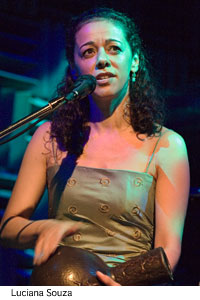 Luciana Souza is one of the most important of the contemporary Brazilian vocalists in the tradition of jazz-influenced, politically-oriented vocalists. Like both Nara Leão and Gal Costa she is not simply an entertainer. She is an artist deeply committed to creating meaningful music.
Souza’s version of “Corcovado” is taken from her Grammy-nominated album North And South featuring Fred Hersch on piano, Scott Colley on bass, and Clarence Penn on drums. Of the album Souza’s says, “This is the final album of a trilogy—my need to refer back to my Brazilian roots, my desire to embrace jazz and the American songbook, and my attempt to combine elements of these idioms in my own composing.” This version is much, much more than merely an attempt. In the future we will feature Luciana on BoL.
Luciana Souza is one of the most important of the contemporary Brazilian vocalists in the tradition of jazz-influenced, politically-oriented vocalists. Like both Nara Leão and Gal Costa she is not simply an entertainer. She is an artist deeply committed to creating meaningful music.
Souza’s version of “Corcovado” is taken from her Grammy-nominated album North And South featuring Fred Hersch on piano, Scott Colley on bass, and Clarence Penn on drums. Of the album Souza’s says, “This is the final album of a trilogy—my need to refer back to my Brazilian roots, my desire to embrace jazz and the American songbook, and my attempt to combine elements of these idioms in my own composing.” This version is much, much more than merely an attempt. In the future we will feature Luciana on BoL.
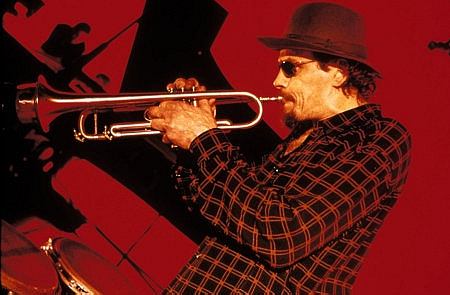 I know it’s damn near sacrilegious to say so but here goes: Nuyorican trumpeter/congolero Jerry Gonzalez, leader of the Fort Apache Band, blesses us with the version of “Corcovado” that Miles failed to make when Miles did a Brazilian collaboration with Gil Evans. First of all, Jerry got cojones up the whazoo. My man strips the song down to trumpet and piano, and then he uses a Harmon mute, thereby baiting us to make a comparison with Miles, whom most jazz afficianadoes consider the master of mute-rendered ballads.
Jerry is sublime. I’ve never heard anyone else play in a Miles manner better than Jerry. Hell, Jerry played this better than Miles. Most of the song is rendered in the middle and lower registers with not even an occasional high note for emphasis or variety. He does it all with breath control, tone and impeccable pacing. Man, Jerry’s version is a prayer. Stunning in its sensitivity. Steel strong in its subtle beauty. This is a hall of fame performance that has the ebb and flow of Ipanema at dawn, waves washing to and fro, lapping at your toes as you offer supplications to Yemanya.
I know it’s damn near sacrilegious to say so but here goes: Nuyorican trumpeter/congolero Jerry Gonzalez, leader of the Fort Apache Band, blesses us with the version of “Corcovado” that Miles failed to make when Miles did a Brazilian collaboration with Gil Evans. First of all, Jerry got cojones up the whazoo. My man strips the song down to trumpet and piano, and then he uses a Harmon mute, thereby baiting us to make a comparison with Miles, whom most jazz afficianadoes consider the master of mute-rendered ballads.
Jerry is sublime. I’ve never heard anyone else play in a Miles manner better than Jerry. Hell, Jerry played this better than Miles. Most of the song is rendered in the middle and lower registers with not even an occasional high note for emphasis or variety. He does it all with breath control, tone and impeccable pacing. Man, Jerry’s version is a prayer. Stunning in its sensitivity. Steel strong in its subtle beauty. This is a hall of fame performance that has the ebb and flow of Ipanema at dawn, waves washing to and fro, lapping at your toes as you offer supplications to Yemanya.
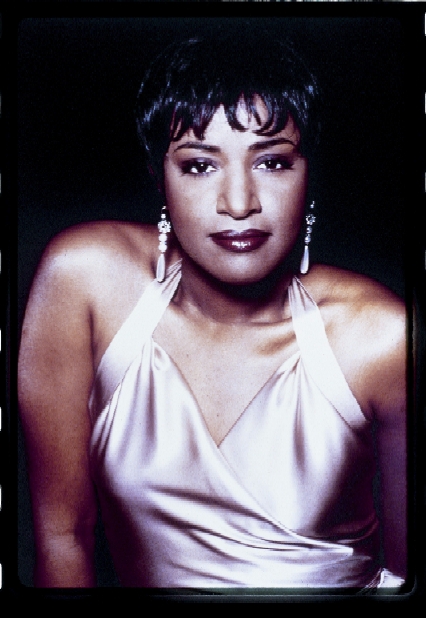 And then Vanessa Rubin channels Yemanya. Rubin accepts the challenge of Jerry’s dead-slow tempo, Richard Goods adds a syncopated bass line, and then Vanessa proceeds to emote as though Miles at his best had climbed into her mouth, and if not Miles, Vanessa was reprising Jerry’s masterful improvisation. When she does that “oh baby, baby, baaaa-bbbeee, keep it right there” phrase and follows up with about eight bars of moans, well, what can you say? I’m sure you can feel the vibe and are now fully aware of why the Black woman is called “heaven” by those in the know.
I’ve never ever heard anything this strong from Ms. Rubin. It’s got me going back and reconsidering her body of work. This is my pick for the best of all fifteen versions we have here. Taken from her album Language of Love, this is undoubtedly the most innovative of all the versions. Forget Bossa Nova as popular music, this is aural intimacy of the Biblical kind. Talk about a smoldering bush on “Corcovado.” If Moses had heard this I doubt he’d be down from the mountain yet.
And then Vanessa Rubin channels Yemanya. Rubin accepts the challenge of Jerry’s dead-slow tempo, Richard Goods adds a syncopated bass line, and then Vanessa proceeds to emote as though Miles at his best had climbed into her mouth, and if not Miles, Vanessa was reprising Jerry’s masterful improvisation. When she does that “oh baby, baby, baaaa-bbbeee, keep it right there” phrase and follows up with about eight bars of moans, well, what can you say? I’m sure you can feel the vibe and are now fully aware of why the Black woman is called “heaven” by those in the know.
I’ve never ever heard anything this strong from Ms. Rubin. It’s got me going back and reconsidering her body of work. This is my pick for the best of all fifteen versions we have here. Taken from her album Language of Love, this is undoubtedly the most innovative of all the versions. Forget Bossa Nova as popular music, this is aural intimacy of the Biblical kind. Talk about a smoldering bush on “Corcovado.” If Moses had heard this I doubt he’d be down from the mountain yet.
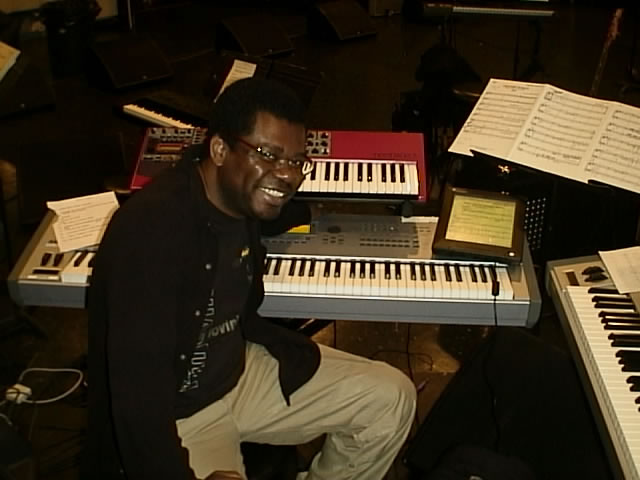 Up next is Rio-born, Jersey-resident pianist/vocalist Jetro da "Sotto-voiced" Silva who sings with the sagacity of a seventy-year-old Zen master. He starts out rubato, out of tempo, talk-singing in that distinctive hushed voice favored by many Bossa Nova vocalists. By the second chorus he’s into a slow bossa but then an odd things happens. I shouldn’t say odd because it makes excellent sense, it was just unexpected. When Jetro starts his paino solo, it’s jazz all the way. After the first chorus he’s swinging hard and then he puts syncopations and cross rhythms atop the steady bossa-bass line. On the back end of the song, he goes into a scat cadenza. His pitch is perfect as he jumps intervals and plummets to the bottom of his warm baritone voice.
Jetro attended Berkelee School of Music in Boston. His jazz influences are obviously the result of deep study, but as for his touch and his timing, they don’t teach that in any institution. This is from his debut release. I look forward to more from him.
Up next is Rio-born, Jersey-resident pianist/vocalist Jetro da "Sotto-voiced" Silva who sings with the sagacity of a seventy-year-old Zen master. He starts out rubato, out of tempo, talk-singing in that distinctive hushed voice favored by many Bossa Nova vocalists. By the second chorus he’s into a slow bossa but then an odd things happens. I shouldn’t say odd because it makes excellent sense, it was just unexpected. When Jetro starts his paino solo, it’s jazz all the way. After the first chorus he’s swinging hard and then he puts syncopations and cross rhythms atop the steady bossa-bass line. On the back end of the song, he goes into a scat cadenza. His pitch is perfect as he jumps intervals and plummets to the bottom of his warm baritone voice.
Jetro attended Berkelee School of Music in Boston. His jazz influences are obviously the result of deep study, but as for his touch and his timing, they don’t teach that in any institution. This is from his debut release. I look forward to more from him.
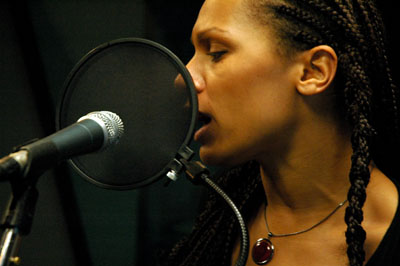 Next, Lyambiko presents us a swinging jazz-bossa rendition with Portuguese lyrics. Lyambiko (Tanzanian father/German mother) and her band are from Germany! The musicians are: Marque Lowenthal on piano, Robin Draganic on bass, Torsten Zwingenberger on drums and Giorgio Crobu on guitar.
These folk have some serious jazz chops. I enjoy the band as much as I do Lyambiko’s lead vocals. “Corcovado” is a long way from home in this version and yet it sounds like something you might hear in an up-scale São Paulo hotel or New York City jazz club. Of course I will bring share more of her music in the future.
A word about the recording quality. You can hear these folk breathing, humming along with the music. It has the intimacy of a nightclub recording. Good work, really good work.
Next, Lyambiko presents us a swinging jazz-bossa rendition with Portuguese lyrics. Lyambiko (Tanzanian father/German mother) and her band are from Germany! The musicians are: Marque Lowenthal on piano, Robin Draganic on bass, Torsten Zwingenberger on drums and Giorgio Crobu on guitar.
These folk have some serious jazz chops. I enjoy the band as much as I do Lyambiko’s lead vocals. “Corcovado” is a long way from home in this version and yet it sounds like something you might hear in an up-scale São Paulo hotel or New York City jazz club. Of course I will bring share more of her music in the future.
A word about the recording quality. You can hear these folk breathing, humming along with the music. It has the intimacy of a nightclub recording. Good work, really good work.
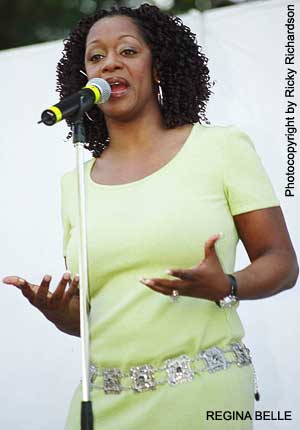 Regina Belle lets loose her R&B inclinations and takes this the full-bore, Quiet Storm route. Mtume, you’ll probably not be too impressed by this heavily produced (chorus, keys, saxophone, prominent bass riff) version, but for those who like this kind of arrangement, this one is a definite keeper.
Regina Belle lets loose her R&B inclinations and takes this the full-bore, Quiet Storm route. Mtume, you’ll probably not be too impressed by this heavily produced (chorus, keys, saxophone, prominent bass riff) version, but for those who like this kind of arrangement, this one is a definite keeper.
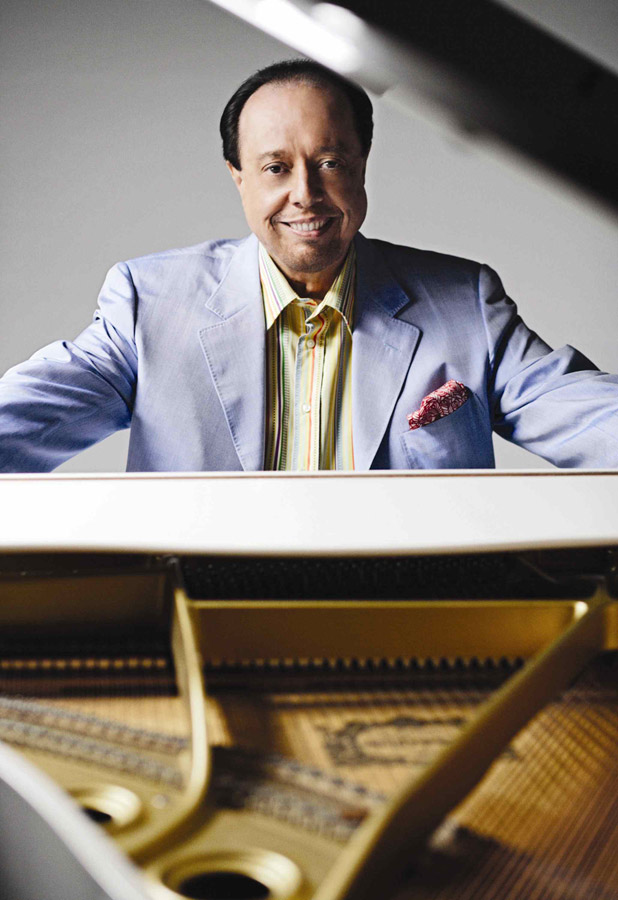 Up next, my man Sergio Mendes gives us the swinging small band treatment complete with a tight-ass horn section that would give the legendary Basie Orchestra a battle as far as ensemble playing. Perhaps because he was so popular back in the day, serious jazz heads have overlooked pianist, composer, arranger Sergio Mendes, but my man is the real deal: a versatile and creative Brazilian musician with an internationalist outlook.
Up next, my man Sergio Mendes gives us the swinging small band treatment complete with a tight-ass horn section that would give the legendary Basie Orchestra a battle as far as ensemble playing. Perhaps because he was so popular back in the day, serious jazz heads have overlooked pianist, composer, arranger Sergio Mendes, but my man is the real deal: a versatile and creative Brazilian musician with an internationalist outlook.
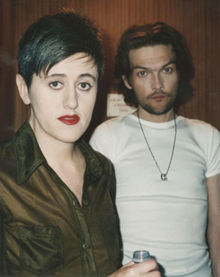 The odd-number in this survey is the final selection, a remix of an Everything But The Girl drum-and-bass treatment of “Corcovado.” EBTG is a British pop duo of lead singer Tracey Thorn and keyboardist/vocalist/DJ/producer Ben Watt. This version of “Corcovado” is taken from their career-spanning remix album Adapt or Die: Ten Years of Remixes.
I know this seems like a radical departure but Brazilian music is a massive influence on and major aspect of contemporary club/dance music. Although this is a long way from traditional Bossa Nova, it is directly inspired by the samba root (as you can easily hear at the end of the song).
Although we're giving you over an hour’s worth of diverse selections, this is really only a cursory overview of Bossa Nova and its modern development traced through variations of one song, "Corcovado." There is much, much more, but that is for another time.
—Kalamu ya Salaam
Astrud Gilberto - Getz/Gilberto
Nara Leao - Garota De Ipanema
Elis Regina - Montreaux
Ithamara Koorax - Casa Da Bossa
Trio Esperanca - A Capela do Brasil
Gal Costa - Live at the Blue Note
Sarah Vaughan - The Essential Sarah Vaughan
Peter Martin - Something Unexpected
Luciana Souza - Norte e Sul
Jerry Gonzalez - Moliendo Cafe
Vanessa Rubin - Language of Love
Jetro da Silva - Jetro Da Silva Live
Lyambiko - Lyambiko
Regina Belle - Lazy Afternoon
Sergio Mendes - Pure Bossa Nova
Everything But The Girl - Adapt or Die
An embarrassment of riches
Talk about an embarrassment of riches. Let's see if we can get handle on this...
Getz/Gilberto feat. Astrud - The classic. Simply sublime. My favorite version of them all from the collection of songs that introduced me to Bossa Nova. Bad singing never sounded so damn good.
Nara Leão - I don't have any Nara Leão, but this version lets me know I need to get some. It's winsome, gentle and very pretty. Nara makes a quintessential night-time song sound like a quiet afternoon on the couch.
Elis Regina - I love Elis Regina. I'm crazy about her classic album with Jobim. She's a great vocalist - probably the most talented (save Sarah Vaughan) of this entire collection of singers. That said, I'm not crazy about this jazz deconstruction of "Corcovado." Fragments of the melody remain, but the familiar chord development of the song is done for. This will thrill some and dismay others. Count me in the latter camp.
Ithamara Koorax - This version sounds like a cliché (especially after the cats from Os Cariocas jump in), but a good one. If I found myself in a club one night while on a romantic vacation to Rio, this is the version I'd most like to hear. Cheesy, way over-done and even slightly ridiculous...but it gets to me nonetheless.
Trio Esperança - I'm really split on this one because I like the lead vocals a lot. I like the 'la la la' background parts too. But what's with the harmony/chorus section? They sound like their vocals are running through a low-grade Vocoder. That's just weird. (And not 'good weird,' either.)
Gal Costa - Another legend who's recorded so much music that I love. Gal has the quintessential 'Brazilian' voice. Moody and evocative, yet distant and cool at the same time. This version is extraordinarily pleasant - like a warm shower on a winter's day - but in present company it could get overlooked. The first time I listened to these songs, I wasn't looking at the artists' names. Then, when I read Kalamu's write up, I went, "Gal Costa?! Really? Where was she?" I'd just plain missed it.
Sarah Vaughan - I was waiting for this one and when it finally came on, I was surprised to find that I didn't like it. Usually, as with last week's "Body And Soul," Ms. Vaughan absolutely nails the song. But this time, there's too much bothering the melody and heavy breathing and the like for me to get into it. Like late-period Nancy Wilson, Sarah's almost verging into Las Vegas territory. For me, Sarah's strengths are the purity of her voice and the perfection of her phrasing. This recording doesn't play to her strengths. Or maybe it overplays her strengths. In any event, I'm not feeling it.
Peter Martin - Now, THIS is night-time music. It's also a throwback to the days of Ben Webster and Lester Young...when a tenor sounded full and sweet, like honey. And, Peter's playing couldn't be better. Maybe I'm biased because I know him, but Peter's version is fantastic.
I don't care for either of the very slow vocal versions: the one by Luciana Souza or the feature version by Vanessa Rubin. It must be that I don't like the tempo because both women have fine voices and give good performances. When it comes to vocals, I think I just prefer the uptempo lilt of the traditional pace. I'm convinced this is true particularly because I really enjoy the instrumental portions of both versions.
Jerry Gonzalez - This version is "better" than Miles could've done it because Jerry is a much better horn player than Miles ever was. I enjoy this version a lot. Of course, Jerry's playing doesn't make me want to cry while, on a good night, Miles' does. What can I say....
Jetro da Sotto - I really wish I liked what Jetro is doing vocally because once he starts to play piano, this version gets really, really good. That slow-motion swing of his is undeniable. He's one hell of a pianist, but I just don't dig the vocals.
Lyambiko - I was initially unimpressed with this version. My notes said 'her accent is really bad.' But then I heard it again and I liked it. I think it's the way the band is swinging and the way Lyambiko sort of lays in the pocket, riding that groove. Something about hearing all the other versions brought out the depth of Lyambiko's rhythmic sense and the swinging quality of her band. (I still have a little complaint about the way she sounds singing in Portuguese, but I'm sure her accent is considerably better than mine, so I'll quit with that.)
Regina Belle - Quite a surprise. Kalamu described this version to me before I heard it: "Corcovado" redone as smooth R&B. To me, that sounded like a description from music hell. I was 100% prepared to be disgusted with it before quickly deleting it from my playlist so as not to sully the tunes with which it happened to rub shoulders. Well, surprise, surprise! I like it. I'm still not sure how or why, because Kalamu was dead-on when he said it's the type of thing that I usually hate, but I actually do like it. Go figure.
Sergio Mendes - Here's one to not like! I just don't care for that schmaltzy small-Big Band sound. That's just me. Sorry Sergio.
Everything But The Girl - Consistent with my policy of disliking music made exclusively for clubbing, I don't care for this house remix, but the original song that's being remixed here is great. It's one of my favorite versions of "Corcovado" and one that I listen to all the time. Drum 'n bass never sounded so sensuous. Maybe I can talk Kalamu into adding it on to this already-monstrous collection of covers.
Man, I think I need a nap. I'm wiped out!
The odd-number in this survey is the final selection, a remix of an Everything But The Girl drum-and-bass treatment of “Corcovado.” EBTG is a British pop duo of lead singer Tracey Thorn and keyboardist/vocalist/DJ/producer Ben Watt. This version of “Corcovado” is taken from their career-spanning remix album Adapt or Die: Ten Years of Remixes.
I know this seems like a radical departure but Brazilian music is a massive influence on and major aspect of contemporary club/dance music. Although this is a long way from traditional Bossa Nova, it is directly inspired by the samba root (as you can easily hear at the end of the song).
Although we're giving you over an hour’s worth of diverse selections, this is really only a cursory overview of Bossa Nova and its modern development traced through variations of one song, "Corcovado." There is much, much more, but that is for another time.
—Kalamu ya Salaam
Astrud Gilberto - Getz/Gilberto
Nara Leao - Garota De Ipanema
Elis Regina - Montreaux
Ithamara Koorax - Casa Da Bossa
Trio Esperanca - A Capela do Brasil
Gal Costa - Live at the Blue Note
Sarah Vaughan - The Essential Sarah Vaughan
Peter Martin - Something Unexpected
Luciana Souza - Norte e Sul
Jerry Gonzalez - Moliendo Cafe
Vanessa Rubin - Language of Love
Jetro da Silva - Jetro Da Silva Live
Lyambiko - Lyambiko
Regina Belle - Lazy Afternoon
Sergio Mendes - Pure Bossa Nova
Everything But The Girl - Adapt or Die
An embarrassment of riches
Talk about an embarrassment of riches. Let's see if we can get handle on this...
Getz/Gilberto feat. Astrud - The classic. Simply sublime. My favorite version of them all from the collection of songs that introduced me to Bossa Nova. Bad singing never sounded so damn good.
Nara Leão - I don't have any Nara Leão, but this version lets me know I need to get some. It's winsome, gentle and very pretty. Nara makes a quintessential night-time song sound like a quiet afternoon on the couch.
Elis Regina - I love Elis Regina. I'm crazy about her classic album with Jobim. She's a great vocalist - probably the most talented (save Sarah Vaughan) of this entire collection of singers. That said, I'm not crazy about this jazz deconstruction of "Corcovado." Fragments of the melody remain, but the familiar chord development of the song is done for. This will thrill some and dismay others. Count me in the latter camp.
Ithamara Koorax - This version sounds like a cliché (especially after the cats from Os Cariocas jump in), but a good one. If I found myself in a club one night while on a romantic vacation to Rio, this is the version I'd most like to hear. Cheesy, way over-done and even slightly ridiculous...but it gets to me nonetheless.
Trio Esperança - I'm really split on this one because I like the lead vocals a lot. I like the 'la la la' background parts too. But what's with the harmony/chorus section? They sound like their vocals are running through a low-grade Vocoder. That's just weird. (And not 'good weird,' either.)
Gal Costa - Another legend who's recorded so much music that I love. Gal has the quintessential 'Brazilian' voice. Moody and evocative, yet distant and cool at the same time. This version is extraordinarily pleasant - like a warm shower on a winter's day - but in present company it could get overlooked. The first time I listened to these songs, I wasn't looking at the artists' names. Then, when I read Kalamu's write up, I went, "Gal Costa?! Really? Where was she?" I'd just plain missed it.
Sarah Vaughan - I was waiting for this one and when it finally came on, I was surprised to find that I didn't like it. Usually, as with last week's "Body And Soul," Ms. Vaughan absolutely nails the song. But this time, there's too much bothering the melody and heavy breathing and the like for me to get into it. Like late-period Nancy Wilson, Sarah's almost verging into Las Vegas territory. For me, Sarah's strengths are the purity of her voice and the perfection of her phrasing. This recording doesn't play to her strengths. Or maybe it overplays her strengths. In any event, I'm not feeling it.
Peter Martin - Now, THIS is night-time music. It's also a throwback to the days of Ben Webster and Lester Young...when a tenor sounded full and sweet, like honey. And, Peter's playing couldn't be better. Maybe I'm biased because I know him, but Peter's version is fantastic.
I don't care for either of the very slow vocal versions: the one by Luciana Souza or the feature version by Vanessa Rubin. It must be that I don't like the tempo because both women have fine voices and give good performances. When it comes to vocals, I think I just prefer the uptempo lilt of the traditional pace. I'm convinced this is true particularly because I really enjoy the instrumental portions of both versions.
Jerry Gonzalez - This version is "better" than Miles could've done it because Jerry is a much better horn player than Miles ever was. I enjoy this version a lot. Of course, Jerry's playing doesn't make me want to cry while, on a good night, Miles' does. What can I say....
Jetro da Sotto - I really wish I liked what Jetro is doing vocally because once he starts to play piano, this version gets really, really good. That slow-motion swing of his is undeniable. He's one hell of a pianist, but I just don't dig the vocals.
Lyambiko - I was initially unimpressed with this version. My notes said 'her accent is really bad.' But then I heard it again and I liked it. I think it's the way the band is swinging and the way Lyambiko sort of lays in the pocket, riding that groove. Something about hearing all the other versions brought out the depth of Lyambiko's rhythmic sense and the swinging quality of her band. (I still have a little complaint about the way she sounds singing in Portuguese, but I'm sure her accent is considerably better than mine, so I'll quit with that.)
Regina Belle - Quite a surprise. Kalamu described this version to me before I heard it: "Corcovado" redone as smooth R&B. To me, that sounded like a description from music hell. I was 100% prepared to be disgusted with it before quickly deleting it from my playlist so as not to sully the tunes with which it happened to rub shoulders. Well, surprise, surprise! I like it. I'm still not sure how or why, because Kalamu was dead-on when he said it's the type of thing that I usually hate, but I actually do like it. Go figure.
Sergio Mendes - Here's one to not like! I just don't care for that schmaltzy small-Big Band sound. That's just me. Sorry Sergio.
Everything But The Girl - Consistent with my policy of disliking music made exclusively for clubbing, I don't care for this house remix, but the original song that's being remixed here is great. It's one of my favorite versions of "Corcovado" and one that I listen to all the time. Drum 'n bass never sounded so sensuous. Maybe I can talk Kalamu into adding it on to this already-monstrous collection of covers.
Man, I think I need a nap. I'm wiped out!  —Mtume ya Salaam
—Mtume ya Salaam
This entry was posted on Sunday, February 25th, 2007 at 1:13 am and is filed under Cover. You can follow any responses to this entry through the RSS 2.0 feed. You can leave a response, or trackback from your own site.
6 Responses to “VANESSA RUBIN / “Corcovado””
March 1st, 2007 at 7:08 am
Part of Bossa Nova creation/invention should be credited to one of the French composer, singer and performer, born in 1917 in Guyana, Henri Salvador (http://fr.wikipedia.org/wiki/Henri_Salvador for French full version or http://en.wikipedia.org/wiki/Henri_Salvador for short English one).
While touring in Brazil, one of his songs (where he added softness based on carribean rhythms) later inspired Jobim.
Still singing and touring at age 90, he should be better known outside of France…
Sincerely
DJM
February 24th, 2008 at 4:50 pm
Thanks for your comments. You can check me out live at Berklee Performance Center on March 25th , 2008 at 8 pm.
November 24th, 2010 at 4:16 pm
Thanks for the Appreciation of Vanessa Rubin’s vocal communication,she conveys the Feeling of the song
January 24th, 2011 at 1:41 pm
[…] of the Biblical kind.. Nara makes a quintessential night-time song sound like a quiet Breath of life » VANESSA RUB […]
September 3rd, 2015 at 9:10 pm
You have a picture of Cristo on Corcovado and I need to ge the rights to that picture. Where did you get the picture?
I’m working on a book, an Adventure/Romance from a memoir by Kay Henkel (a very successful sculptress) when she and her husband went to Rio for a job and ended up living in and around Rio, Tres Rios, and Areal. She had adventures in Rio. They stayed from December 1945 thru Aug 1947. I want to include photos for the period to establish the image of the story.
I need to find the rights holder to the picture on this site so I can get a release to use it.
These photos are on the website.
Thank you.
William Claypool
Leave a Reply
| top |